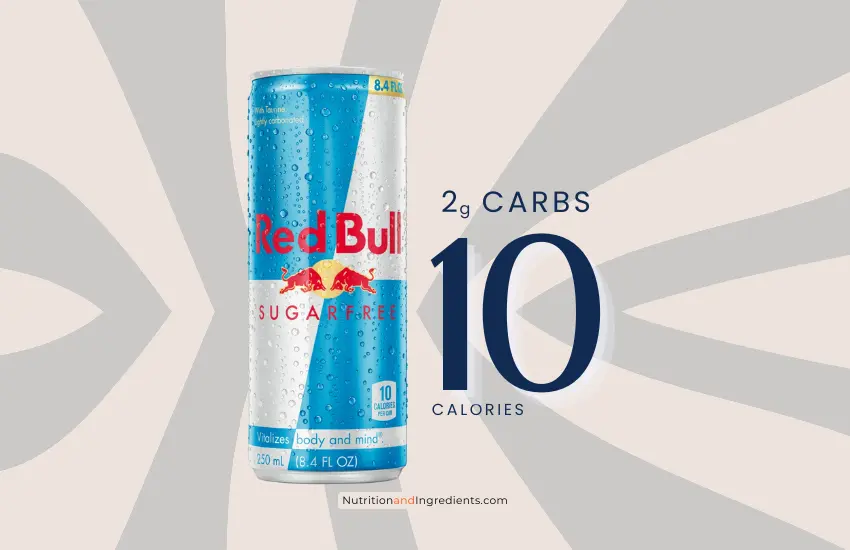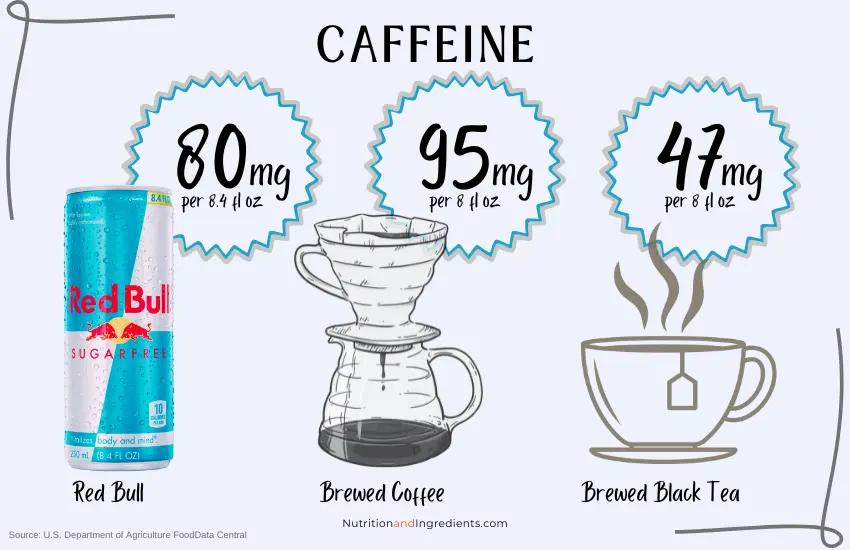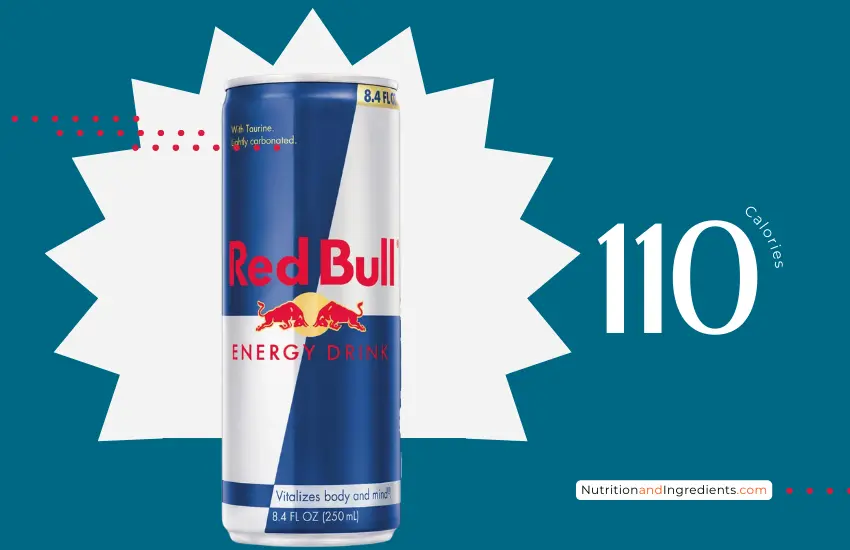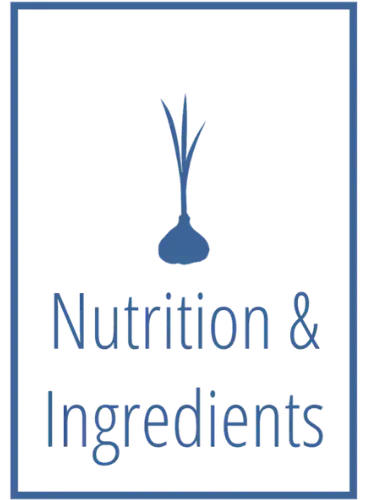Sugarfree Red Bull Energy Drink

Red Bull Energy Drink contains caffeine, Vitamin B, sugars, Taurine, an amino acid, and water.
There are 80mg of caffeine in one can (8.4 fl. oz.) of Sugarfree Red Bull, nearly the same amount of caffeine as in a single cup of home brewed coffee, which has about 95mg of caffeine.
Other varieties of the energy drink include Zero and flavored versions such as the Amber edition with a Strawberry Apricot flavor or the Red edition, which has a watermelon flavor.
We exist as a media company to provide unbiased data-driven food reviews and reports. If you decide this is a good product and make a purchase using links on this page, we may earn a commission (at no additional cost to you).
Sugarfree Red Bull Nutritional Information
Red Bull is available in various sizes, including 8.4 ounce, 12 ounce, 16 ounce, and 20 ounce cans. The Nutrition facts presented herein are based on a single 8.4 fluid ounce can of Sugarfree Red Bull.
Calories
One 8.4 ounce can of Sugarfree Red Bull contains 10 calories. All of the calories are derived from carbohydrates.
There is zero fat and zero protein in a red bull energy drink. All calories are derived from carbohydrates.
Sugar-Free Red Bull
% calories from fat, carbs and proteinThe summary of calories by nutrient is a rounded estimate based on the nutrition facts provided by Red Bull.

Caffeine
An 8.4 fl oz serving of sugarfree Red Bull contains 80 milligrams of caffeine. For comparison, an 8 oz cup of home-brewed coffee has an average of about 95mg of caffeine.

Compare Nutrition Facts: Dunkin’ Frozen Matcha Latte
Nutrition Facts
Amount per 1 can (8.4 fl oz)
Red indicates %DV is high.
|
Calories |
10 |
|
%DV | ||
|
Total Fat |
0g |
0% |
|
Saturated Fat |
0g |
0% |
|
Trans Fat |
0g | |
|
Cholesterol |
0mg |
0% |
|
Sodium |
105mg |
5% |
|
Carbohydrates |
2g |
1% |
|
Dietary Fiber |
0g |
0% |
|
Total Sugars |
0g | |
|
Added Sugars |
0g |
0% |
|
Protein |
0g |
%DV based on a 2,000 calorie diet. Calorie needs vary and your %DV may be higher or lower. Provided for informational purposes only. Consult with your physician for dietary or healthcare advice.
Review Beverage Reports
Ingredients in Sugar Free Red Bull
Here is the list of ingredients in a sugarfree Red Bull energy drink.
Ingredients |
|---|
|
Carbonated Water, Citric Acid, Taurine, Natural and Artificial Flavors, Sodium Bicarbonate (Baking Soda), Magnesium Carbonate, Colors, Caffeine, Sucralose, Xanthan Gum, Acesulfame K, Niacinamide, Pyridoxine HCI (Vitamin B6), Calcium Pantothenate, Vitamin B12 |
Resources
About Red Bull
Red Bull was founded in 1984 by Austrian Dietrich Mateschitz. The company is a large sponsor of athletes and past and present sporting events such as the Red Bull BC One World dancing competition, Red Bull Solo Q eSports competition, and Formula 1 Racing, among many others.

We publish 100% unbiased nutrition reports based on in-depth reviews and analysis of nutrition and ingredients data conducted by our staff. We do not use AI nor do we accept payments or incentives in exchange for special consideration when preparing food reviews. Direct links to online retailers such as Amazon are provided on this page for your convenience. If you are interested in the product and use the links to make a qualifying purchase, we may receive a small referral fee (at no additional cost to you) to help cover the expense of maintaining this site and publishing free nutrition reports. Please read our disclosure for more information.
Nutrition facts, prices, and ingredients are based on available information as of the date of publication. Restaurants and food manufacturers may change recipes or formulations without notice. Check package labels and ask the product manufacturer or restaurant for the most up-to-date information. Unless otherwise stated, %DV is based on a 2,000 calorie diet. All reports and reviews published on this site are for informational purposes only. NutritionandIngredients.com does not provide healthcare advice or dietary recommendations. Always consult your licensed physician for any healthcare or dietary advice.
Nutrition facts and ingredients source: Red Bull
